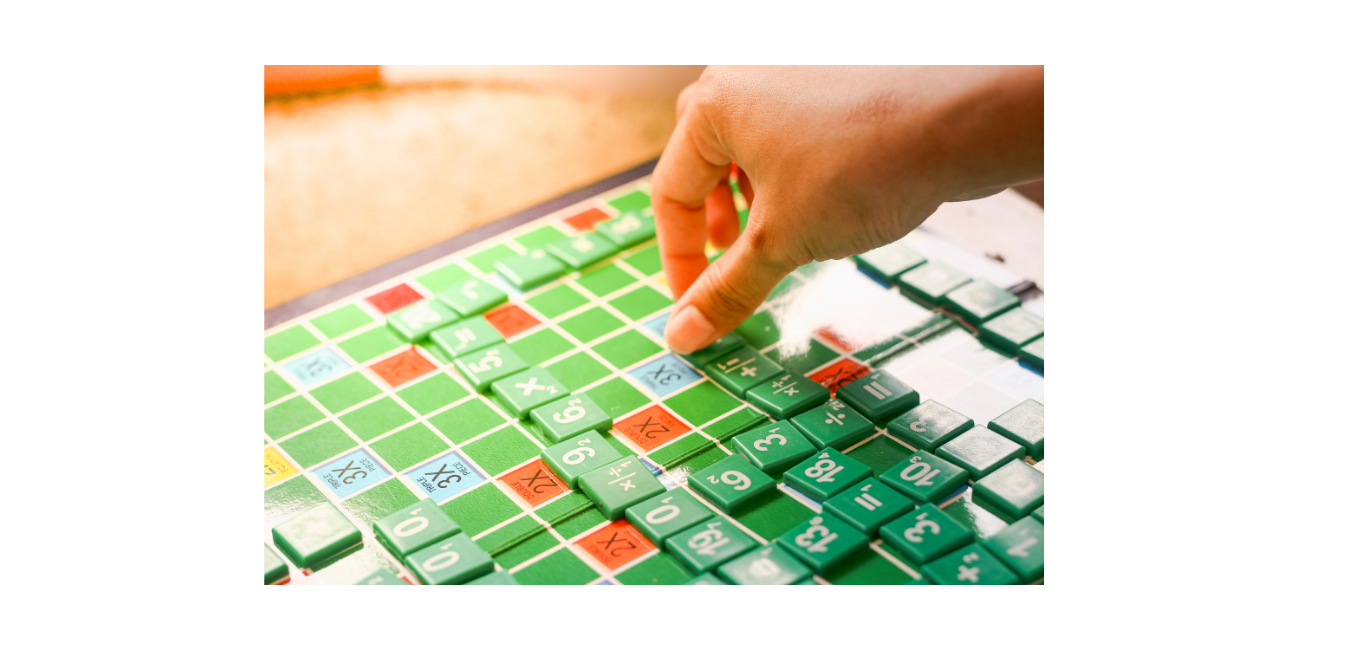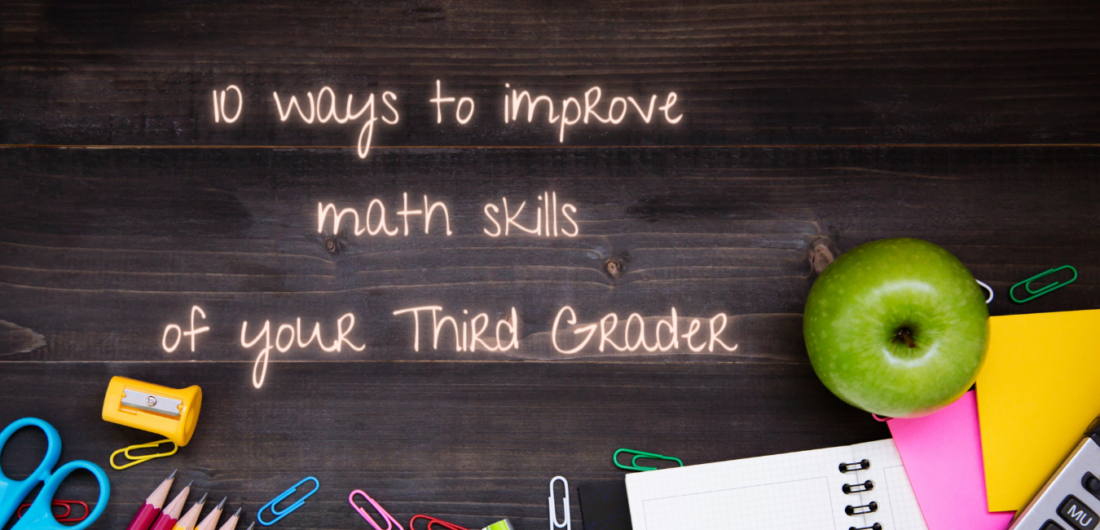In third grade, kids learn basic but most essential math skills. The actual foundation is laid in this grade, so paying extra attention to cultivate healthy math habits is every crucial because as they move on to upper grades these fundamental things will help them to succeed further in math and eventually boosting their confidence.
Most of the time when people find math problems difficult or complex due to a lack of proper mathematics education during their earlier learning stage, hence don’t miss out on the opportunity to build a strong base.
Let’s take a look at “what are 10 ways to improve the math skills of your third grader so that he/she will keep on shining in math.”
1. Understand the basic concepts

Understand the basic concept
It might be very basic, but understanding the basic concepts thoroughly is very important. Having a good grip of the basic concept might seem something too obvious but it is crucial. How addition, subtraction multiplication, or division works, and the meaning of these basic operations gives a strong foundation for building math skills. Make sure that your kid understands these operations. Every kid is different and every kid needs different time and strategy to understand new things. Let your kid take sufficient time, to wrap his/her mind around the basic math operations before going any further.
2. Write clearly and neatly

Write clearly and neatly
This is something that needs to instill and cultivate deliberately. When I am saying writing clearly and neatly, I am not talking about handwriting. Working to adopt the habit to write numbers neatly and clearly makes it easy to understand the operations that kids are learning. It takes care of one hurdle they are facing while learning new things in math. Using 1/2 inch graph papers for solving math problems also helps to a great extend. It is always encouraged to stack numbers before adding or subtracting. When kids are stacking numbers for adding or subtracting always remind them to write numbers from a place under each other. That means the numbers from “ones” place go under one another and numbers from “tens” place go one another and so on. This will lessen the confusion when handling two or more digit numbers and understanding the concepts like regrouping or borrowing.
3. Start slow

Start slow
Learning math is just a piece of cake when your approach is systematic. Instead of rushing through, always start slow and move forward only when kids are comfortable. E.g. while learning simple addition: two digits, before adding up two, two-digit numbers (e.g. 15 + 11 ) you start adding two-digit numbers with a single-digit number (e.g. 15 + 3).
4. Develop number sense at home

Develop number sense at home
kids develop a good understanding of number sense when it is connected to something real, like weights, lengths, time, quantities of cooking ingredients, the number of people, and so on. You can always encourage your child to start counting and measuring by making the following tools accessible at home:
- Rulers, measuring tapes, pedometers, and family height charts
- Kitchen and bathroom scales
- Measuring cups, spoons, and containers
You can also take help from toys or game that provide visual pictures of math, including:
- An abacus
- Sticker charts
- Playing cards
- Building blocks
- Connecting shapes (like Magnetic Tiles)
- Flashcards and puzzles
Once you have created a math-rich environment with everyday items, some magnetic numbers on the fridge or a colorful counting poster on the wall will be the icing on the cake!
5. Bring Math into everyday life

Bring Math into everyday life
Children who are still learning counting numbers or addition, subtraction or division, can benefit if you use these terminologies in everyday life. you can ask them how many pieces we made of pizza, how many pieces we ate… how many pieces are left. How many steps on the staircase to reach the top. You can also take a day to day examples with pencils, crayons, how many steps they walked. Using objects and things around us, makes them connect with the objects as they are actively taking part in the examples. Visual aids always help to understand.
6. Parents play an important role

Parents play an important role
When children don’t develop any mathematical skills while they’re young, it becomes increasingly difficult for them to learn advanced concepts later on. Any child’s education begins at home even before they start going to school. The comfort level a kid shares with his/her parents helps them to open up and handle their struggles with any pressure. Therefore, parents play a huge role in kids mathematical success.
7. Make math a game

Make math a game
Don’t let your children get burdened but at the same time don’t make them memorize the solutions too. Always encourage your kids to use their reason skills and encourage them to find the solution. You can always create stories or creative games around math problems and numbers to foster deeper understanding.
8. Be in touch with your child’s teacher

Be in touch with your child’s teacher
Always be in touch with your child’s teacher for their feedback and guidance. They are the professionals and they deal with a lot of children with different abilities at school and their experience and tricks can come in handy to help your child. Most of the time teachers are overwhelmed with the work but you can be open and honest with your child’s teacher about the challenges he/she is facing in Math, and that you want help to overcome, they will always help you to help your child.
9. Practice, practice, and practice

Practice, practice, and practice
There are no shortcuts to practice. I can’t agree more with the old saying “practice makes you perfect” here. The more practice is done at the basic level of learning math it will be easier for kids to understand the complex mathematical terms going forward. Practicing does not mean kids should be bombarded with math problems. Instead, consistency in practice is the key factor. Let your child do 5 problems every day focusing on the parts where the child is struggling.
10. Don’t be judgmental

Don’t be judgmental
Last but certainly not least, please don’t be judgmental if your child is struggling or taking some extra time to understand math. Every child is different and every child’s thinking process is different. It is damaging for you and your child to compare him/her with their peers. Every child’s needs and ways of learning are different. Instead of panicking you can always focus on the ways to help him/her to accept that it is normal to struggle and face challenges while learning. It is the most essential part of learning and there is nothing to feel bad about it. Everyone be it a kid or an adult struggle to understand when they are learning something new and comparing with peers or siblings will not help anyway. After all, learning should be fun and one should not aim for successful grades solely but also be happy, and creative.
To sum it up, to excel in Math or any subject for that matter, all it takes is to accept that you might need a little extra effort and help but there is nothing wrong with it. Learning anything new, takes some time and one can not excel in everything, but we certainly can aim to become better tomorrow than yesterday by working on it today.


